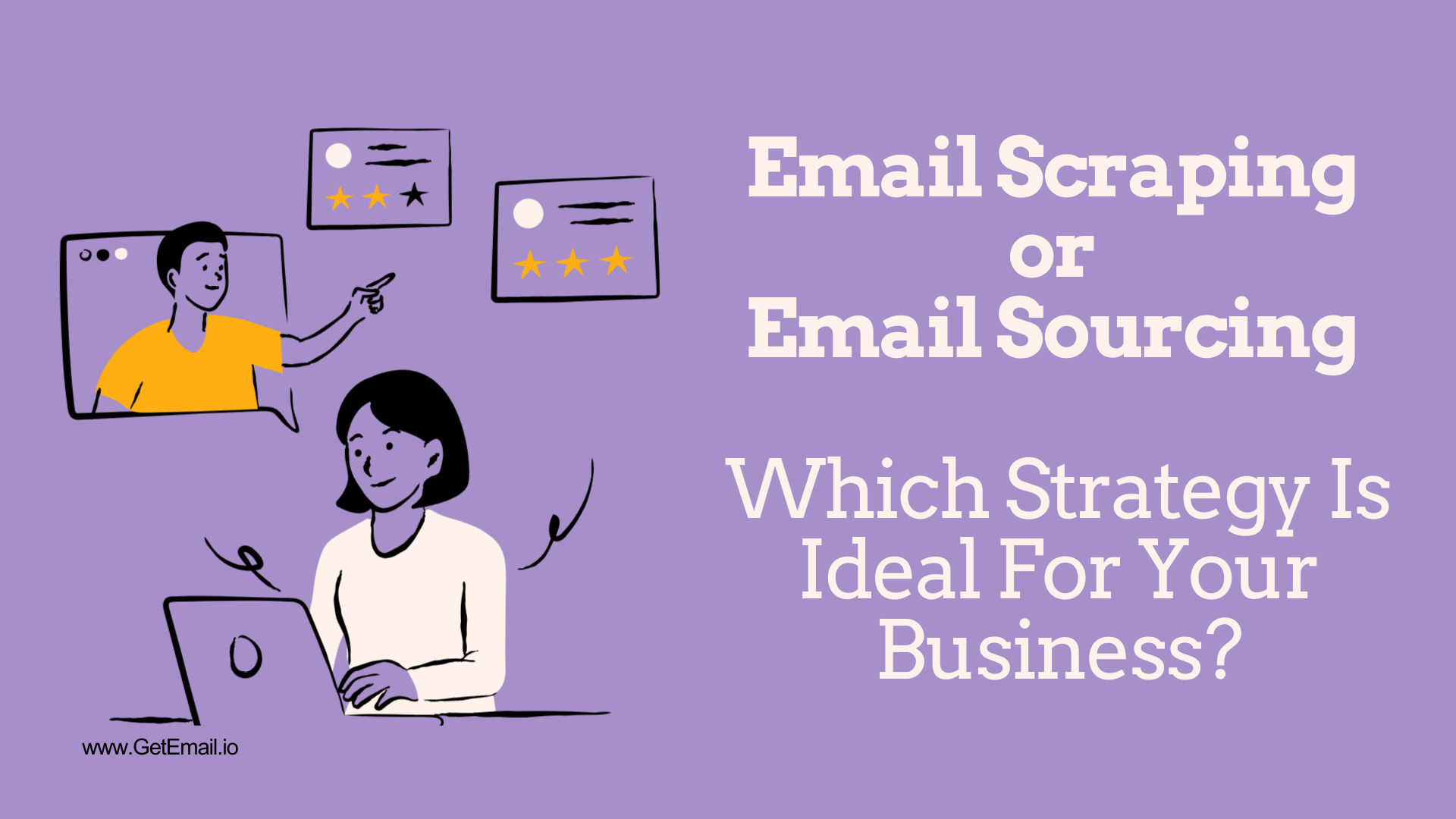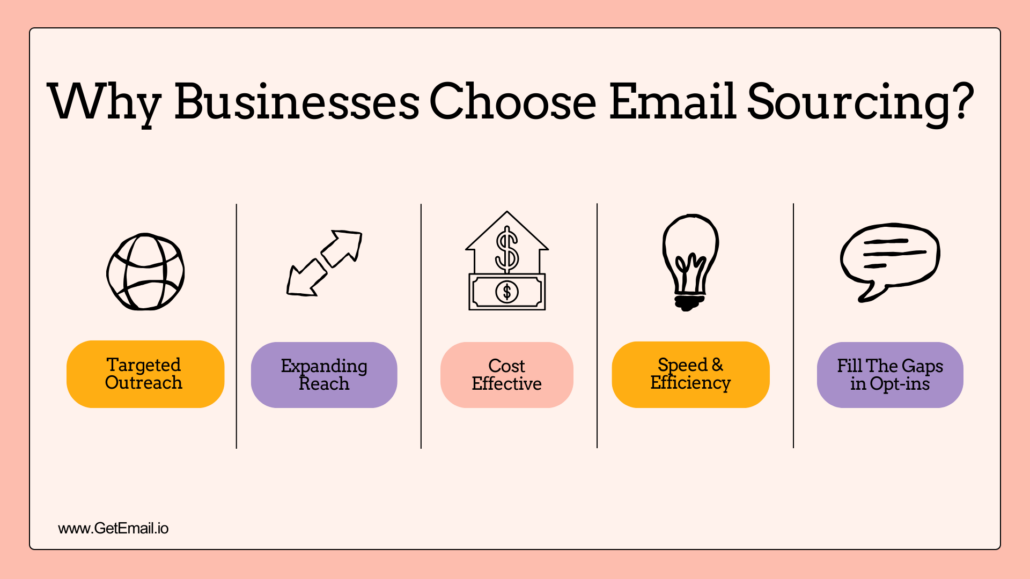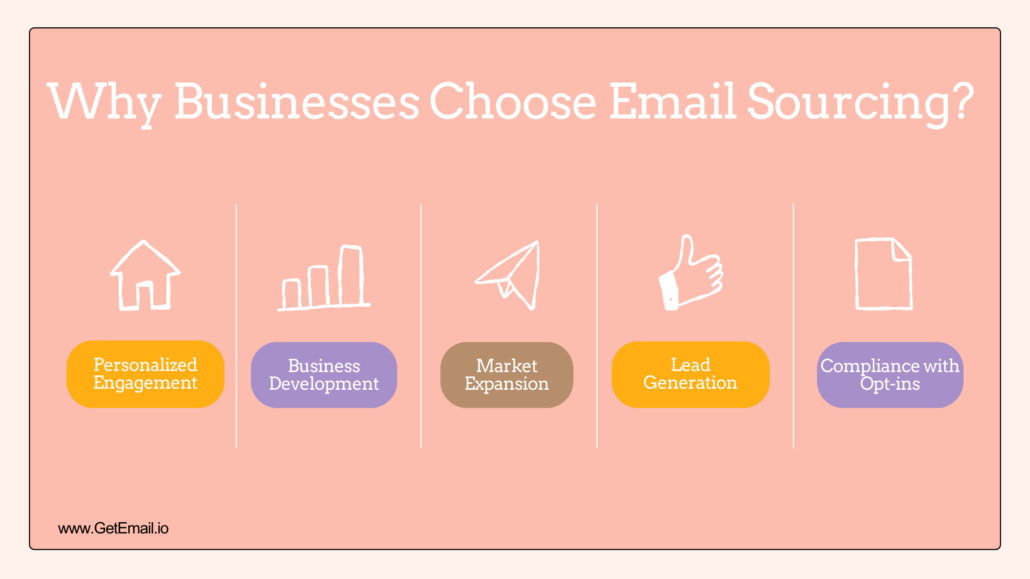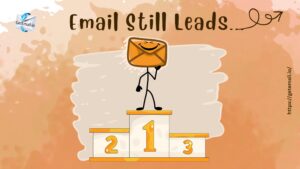
Is email sourcing right for you or should you scrape it manually? Emails are best platform for professional communication. In fact, 81% of the organization around the world use email as a part of their marketing strategy.
But where do these email addresses come from? Marketers and businesses often face a dilemma: Should they scrape emails from websites, or should they invest time and resources into email sourcing?
While both methods can help you build a list of contacts, they come with distinct advantages, disadvantages, and other implications.
Today, we’ll explore the differences between both. Let’s delve into their pros and cons and best practices to ensure you make the right choice on how to approach email collection for your marketing efforts!
What is Email Scraping?
Email scraping is when you automate the process of extracting email addresses from websites, social media platforms, and other online resources using software or bots. This method often involves crawling through web pages and gathering any email addresses that appear in the content, whether in the text or code of the page.
What are the advantages?
- Speed and Efficiency: One of the most significant advantages of email scraping is its ability to gather a large number of email addresses quickly. Automated tools can scrape hundreds or even thousands of addresses in a short amount of time, which is particularly useful when you need to build a large email list fast.
- Low Cost: Compared to other methods of acquiring email addresses, scraping can be relatively inexpensive. Many scraping tools are available for free or at a low cost, making this method accessible to businesses with limited budgets.
- Broad Reach: Scraping lets you gather email addresses from a wide range of sources, potentially giving you access to contacts you wouldn’t have found through traditional means.
Why don’t businesses prefer this?
- Legal and Ethical Issues: Email scraping is often considered a grey area legally and ethically. Many jurisdictions have strict regulations, such as the GDPR in Europe, that prohibit the collection of personal data without consent. Using scraped emails without permission can lead to legal penalties and damage your brand’s reputation.
- Low-Quality Leads: The emails gathered through scraping might not belong to individuals interested in your product or service, leading to low engagement rates and high unsubscribe rates. It also increases the chances of your emails being marked as spam.
- Risk of Blacklisting: Emailing scraped contacts can result in high bounce rates and spam complaints, which can lead to your email domain being blacklisted by email service providers. This severely impacts your ability to send emails in the future.
There is another option to source email addresses ethically without worrying about compliance and that is – Ethical Email Sourcing!
What is Email Sourcing?
Email sourcing involves collecting email addresses through transparent and consent-based methods. It’s a process where you search email addresses and collect them for a specific purpose, such as marketing campaigns, networking, or outreach efforts.
The practice usually involves identifying potential contacts within a target audience or industry and obtaining their email addresses through various methods, both manual as well as automated.
Speaking of which, Getemail.io stands out as the best email sourcing tool! Thanks to its accuracy and user-friendly interface that makes every person’s tedious search, for potential contacts, an easy job.
And, there more for the professionals building targeted list, GetEmail.io’s exclusive integrations deliver reliable results, ensuring your outreach is streamlined and productivity sky-rocketed!
Why is it a good deal?
- Higher Engagement Rates: When individuals willingly share their email addresses with you, they are more likely to be interested in your content. The results are translated to higher open rates, click-through rates, and overall engagement.
- Improved Brand Reputation: By adopting ethical practices, you build trust with your audience. People appreciate transparency and remain loyal to a brand that respects their privacy.
- Better Deliverability: Email sourcing leads to higher quality email lists, which means fewer bounces and spam complaints. This way, the businesses get to maintain a good sender reputation, ensuring that your emails are more likely to reach the inbox.
- Compliance with Regulations: It ensures that you comply with laws like GDPR, CAN-SPAM, and other regulations that govern email marketing. By obtaining explicit consent from individuals, you protect your business from legal repercussions.
What are the possible pitfalls of email sourcing?
- Time-Consuming: Building a high-quality email list through ethical sourcing can sometimes take time. While scrapping give your instant results like a google search, email sourcing takes a couple of minutes to give the valid results because it simultaneously verifies the authenticity.
- Cost of Tools: High-quality email finder tools or services can be comparatively expensive, and even might require additional verification processes to ensure data accuracy.
- Perception of Spam: Even if emails are sourced ethically, recipients who didn’t explicitly opt-in may view your messages as unsolicited, leading to spam complaints.
Why Businesses Choose Email Sourcing?
Email sourcing builds trust and credibility, improves deliverability, builds long-term relationship all while being legally compliant to the rules. However, that’s not it! It has more to offer than what meets the eye.

1. Targeted Outreach:
- Precise Targeting: You get to identify and reach specific individuals within the target market, such as decision-makers, industry professionals, or potential partners, who may not be accessible through traditional opt-in methods.
- Custom Audience Building: Build customized email lists based on criteria like job titles, industries, or geographic locations. Ensure that the outreach efforts are more relevant and tailored.
2. Expanding Reach:
- Access to New Contacts: Sourcing helps businesses tap into new audiences that may not have encountered their brand before, expanding their reach beyond existing subscribers.
- Niche Markets: It’s particularly useful for businesses operating in niche markets where traditional lead generation methods might not yield many contacts.
3. Cost-Effectiveness:
- Lower Acquisition Costs: Compared to paid advertising or lead generation campaigns, email sourcing can be a cost-effective way to acquire leads – especially when leveraging existing tools or resources.
- Maximizing ROI: Reach out to potential customers directly which reduces the cost per lead and potentially increases the return on investment (ROI).
4. Speed and Efficiency:
- Rapid List Building: You can quickly build or expand email lists, which is crucial when you need to launch a campaign or enter a new market on short notice.
- Automation Tools: Using email finder tools or APIs can automate parts of the sourcing process. Therefore, making it faster and more efficient to gather many contacts.
5. Filling Gaps in Opt-In Lists:
- Supplementing Opt-In Lists: Businesses use email sourcing to supplement their existing opt-in email lists, particularly when they need to reach specific segments that have not opted in through conventional means.
- Lead Enrichment: Sourcing can also be used to enrich existing leads with additional contact information. Thus, improving the completeness of the data in the CRM.

6. Personalized Engagement:
- Direct Communication: With sourced emails, businesses engage directly with potential clients, bypassing gatekeepers, or intermediaries.
- Customized Messaging: The ability to source specific emails allows for more personalized and targeted messaging. It improves response rates and engagement.
7. Business Development and Networking:
- B2B Relationships: Email sourcing is particularly valuable in B2B settings. Since, building relationships with key industry players, potential partners, or influencers is extremely important.
- Sales Prospecting: Sales teams often use email sourcing to identify and contact potential prospects who fit their ideal customer profile.
8. Market Expansion:
- Entering New Markets: For businesses expanding into new regions, email sourcing provides a way to quickly identify and contact potential partners in those areas.
- Competitive Advantage: Having a robust email list gives you a competitive edge by enabling faster and more direct communication.
9. Lead Generation for Events:
- Event Promotion: Email sourcing is often used to promote events, webinars, or conferences by directly reaching out to target attendees.
- Follow-Up Opportunities: After events, you can use sourced emails to follow up with attendees. This eventually maximizes the impact of your event marketing efforts.
10. Compliance with Opt-In Requirements:
- Compliance Strategies: In regions with strict opt-in requirements, businesses might use sourcing to identify potential leads to whom they can send initial outreach. It offers the audience an opportunity to opt-in for future communications.
Legal Implications and Best Practices
The legal landscape surrounding email collection is complex and varies by region. However, certain principles are universally recognized:
- Transparency: Be clear about how you intend to use the email addresses you collect. Whether through a privacy policy or a sign-up form, transparency builds trust and ensures compliance with regulations.
- Data Security: Protecting the email data you collect is essential. Ensure that your storage and processing methods are secure to prevent breaches and unauthorized access.
- Opt-Out Mechanisms: Always provide an easy way for recipients to unsubscribe from your emails. This is not just a legal requirement but also a best practice to maintain a positive relationship with your audience.
When to Use Email Scraping (If at All)
While email scraping is generally not recommended due to the associated risks, there are specific scenarios where it might be considered:
- Competitive Research: Scraping can be useful for gathering information on competitors’ marketing strategies. However, ensure that the data is not used for direct marketing purposes.
- Data Enrichment: If you already have a list of emails and need to gather additional publicly available data (such as job titles or company names), email scraping can supplement your existing information.
- Non-Marketing Purposes: Some use cases, such as academic research or gathering data for analysis, may justify email scraping. However, it’s essential to remain within legal boundaries and avoid using this data for unsolicited marketing.
Best Practices for Email Sourcing
Having a best practice for email sourcing can never go wrong! Here’s a quick list for you to consider.
- Create Valuable Content: Offer high-quality content like eBooks, webinars, or exclusive articles in exchange for email addresses. This not only helps build your list but also ensures that your contacts are genuinely interested in your offerings.
- Use Double Opt-In: Implementing a double opt-in process, where users confirm their subscription by clicking a link sent to their email, can improve the quality of your list, and reduce the risk of spam complaints.
- Targeted Sourcing: Focus on acquiring high-quality, relevant emails rather than amassing a large list. Engaged and interested users are more likely to convert and less likely to mark your emails as spam.
- Segment Your List: Once you have a list, segment it based on criteria such as interests, behaviours, or demographics. This way, you can send more targeted and relevant emails while also improving engagement.
- Regularly Clean Your List: Periodically remove inactive or unengaged contacts from your list. It helps maintain a healthy sender reputation and ensures that you’re only reaching those who are interested in your content.
Let’s Recap Our Discussion
The debate between email scraping and ethical email sourcing is more than just a question of efficiency versus morality; it’s about aligning your practices with legal standards and long-term business goals.
While scraping might offer quick wins, the potential downsides—legal risks, poor-quality leads, and damage to your brand—often outweigh the benefits.
On the flip side, email sourcing, though more time-consuming, builds a foundation of trust, compliance, and higher engagement.
If you think about it, the ultimate approach depends on your specific needs and objectives. However, for most businesses, investing in email sourcing practices will yield better results in the long run.
Why?
Because it builds stronger relationships with your audience and safeguards your reputation.
Adhere to best practices and stay informed about legal requirements to create an extensive email that,
- Supports your marketing goals
- Reflects your commitment to responsible business practices.
Try our email sourcing tool that also offers a chrome extension to find your potential email addresses on LinkedIn, Gmail, and Salesforce.
Also, if you haven’t yet, check out our brand-new collaboration with Make.com and Zapier! It makes your email finding process easier and quicker by eliminating all manual steps.






